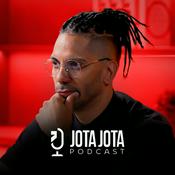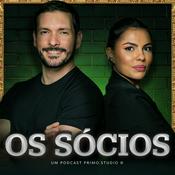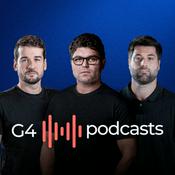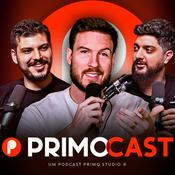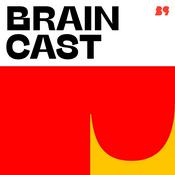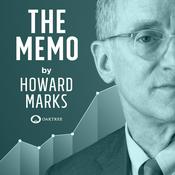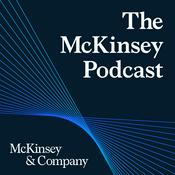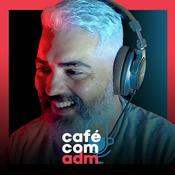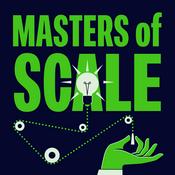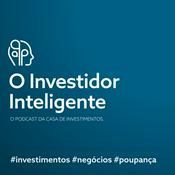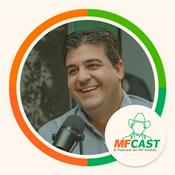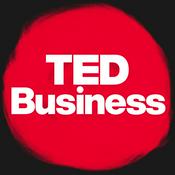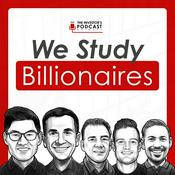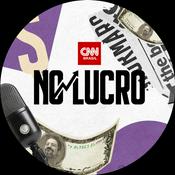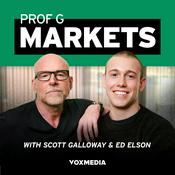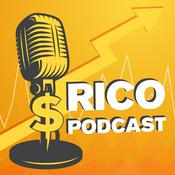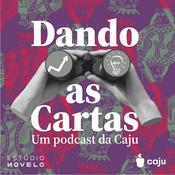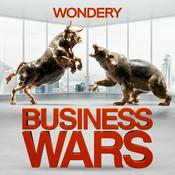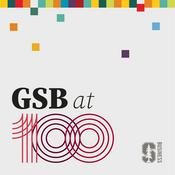47 episódios

GSB at 100: "The Moment"
22/12/2025 | 28min
This week on If/Then we’re sharing an episode of GSB at 100, a limited audio series created especially for Stanford Graduate School of Business’s Centennial. GSB at 100 presents a scrapbook of memories, ideas, and breakthroughs as Stanford GSB celebrates its first century and looks around the corner to what the next 100 years may hold. On this episode of GSB at 100, you’ll experience Centennial Day, hear Dean Sarah A. Soule honor the past, celebrate the present, and look to what the future may hold. GSB at 100 depicts a school defined not only by its innovation and impact, but by its people: curious students, devoted faculty, and accomplished staff — a community of thinkers, dreamers, and doers.Learn more about the Stanford GSB CentennialSee Privacy Policy at https://art19.com/privacy and California Privacy Notice at https://art19.com/privacy#do-not-sell-my-info.

GSB at 100: "The Experience"
26/11/2025 | 29min
This week on If/Then we’re sharing an episode of GSB at 100, a limited audio series created especially for Stanford Graduate School of Business’s Centennial. GSB at 100 presents a scrapbook of memories, ideas, and breakthroughs as Stanford GSB celebrates its first century and looks around the corner to what the next 100 years may hold.On this episode of GSB at 100, you’ll step inside the classrooms where teaching sparks transformation.Learn more about the Stanford GSB CentennialSee Privacy Policy at https://art19.com/privacy and California Privacy Notice at https://art19.com/privacy#do-not-sell-my-info.

GSB at 100: "The Spirit"
12/11/2025 | 24min
This week on [If/Then or View From The Top] we’re sharing an episode of GSB at 100, a limited audio series created especially for Stanford Graduate School of Business’s Centennial. GSB at 100 presents a scrapbook of memories, ideas, and breakthroughs as Stanford GSB celebrates its first century and looks around the corner to what the next 100 years may hold.On this episode of GSB at 100, you’ll hear from the dedicated and accomplished staff members who work behind the scenes to make Stanford GSB a community unlike anywhere else in the world.Learn more about the Stanford GSB CentennialSee Privacy Policy at https://art19.com/privacy and California Privacy Notice at https://art19.com/privacy#do-not-sell-my-info.

What's Your Problem: "Teaching Computers to See"
29/10/2025 | 27min
This week on If/Then, we’re sharing an episode of What’s Your Problem?, a show from Pushkin Industries where entrepreneurs, engineers, and scientists talk about the future they’re trying to build—and the problems they must solve to get there. Hosted by former Planet Money co-host Jacob Goldstein, each conversation explores the challenges and breakthroughs shaping the next wave of innovation.In this episode, Goldstein speaks with Fei-Fei Li, Stanford computer scientist, former Chief Scientist of AI and Machine Learning at Google, and one of the most influential figures in the field of computer vision. Li reflects on her pioneering work developing ImageNet, the massive dataset that helped spark the modern AI revolution, and the “north star” questions that have guided her research from neuroscience to machine learning.Together, they trace how a single insight about how humans see the world led to a paradigm shift in artificial intelligence—and how Li’s vision continues to shape the way we teach machines to see, learn, and collaborate with us.More Resources: • Fei Fei Li • Stanford Institute for Human-Centered Artificial Intelligence (HAI) • ImageNet • What’s Your Problem?If/Then is a podcast from Stanford Graduate School of Business that examines research findings that can help us navigate the complex issues we face in business, leadership, and society.Chapters: (00:00:00) Introducing “What’s Your Problem?” Kevin Cool introduces the Pushkin Industries podcast hosted by Jacob Goldstein.00:00:45 — What Is Computer Vision? Jacob Goldstein and Fei-Fei Li explain how machines learn to see and interpret images.00:03:18 — Real-World Uses of AI Vision Li shares examples from healthcare, robotics, and environmental science.00:05:06 — Discovering the Science of SeeingHow human vision research inspired Li’s lifelong “north star” in AI.00:09:56 — Creating ImageNet Li builds a massive image database that transforms computer vision research.00:13:29 — Defining 30,000 Visual Concepts How cognitive science helped shape ImageNet’s massive scale.00:16:41 — Building the Dataset by HandLi's team uses global crowdsourcing to label millions of images.00:19:38 — The 2012 Breakthrough Jeff Hinton’s neural network shatters records and sparks the deep learning era.00:22:19 — Data Meets Hardware Li reflects on how big data and GPUs converged to power modern AI.00:24:55 — Lightning Round with Fei-Fei Li Quick insights on resilience, mentorship, and the future of human-AI collaboration.See Privacy Policy at https://art19.com/privacy and California Privacy Notice at https://art19.com/privacy#do-not-sell-my-info.

GSB at 100: The Magic
24/9/2025 | 20min
This week on If/Then, we’re sharing an episode of GSB at 100, a limited audio series created especially for Stanford Graduate School of Business’s Centennial. GSB at 100 presents a scrapbook of memories, ideas, and breakthroughs, as the GSB celebrates its first century and looks around the corner to what the next hundred years may hold.The first episode of the series begins where the GSB begins: in 1925, Herbert Hoover, a Stanford alum and future U.S. president, had an idea. “A graduate School of Business Administration is urgently needed upon the Pacific Coast,” he wrote. One hundred years later, what has Stanford Graduate School of Business accomplished, and what might its future hold? Listen in as professors reflect on founding principles, frontier technologies, and the magic that makes the GSB the place it is — and shapes what it aspires to be.If/Then is a podcast from Stanford Graduate School of Business that examines research findings that can help us navigate the complex issues we face in business, leadership, and society. Each episode features an interview with a Stanford GSB faculty member.Learn more about the Stanford GSB CentennialSee Privacy Policy at https://art19.com/privacy and California Privacy Notice at https://art19.com/privacy#do-not-sell-my-info.
Mais podcasts de Negócios
Podcasts em tendência em Negócios
Sobre If/Then
Ouça If/Then, Jota Jota Podcast e muitos outros podcasts de todo o mundo com o aplicativo o radio.net

Obtenha o aplicativo gratuito radio.net
- Guardar rádios e podcasts favoritos
- Transmissão via Wi-Fi ou Bluetooth
- Carplay & Android Audo compatìvel
- E ainda mais funções
Obtenha o aplicativo gratuito radio.net
- Guardar rádios e podcasts favoritos
- Transmissão via Wi-Fi ou Bluetooth
- Carplay & Android Audo compatìvel
- E ainda mais funções


If/Then
baixe o aplicativo,
ouça.
